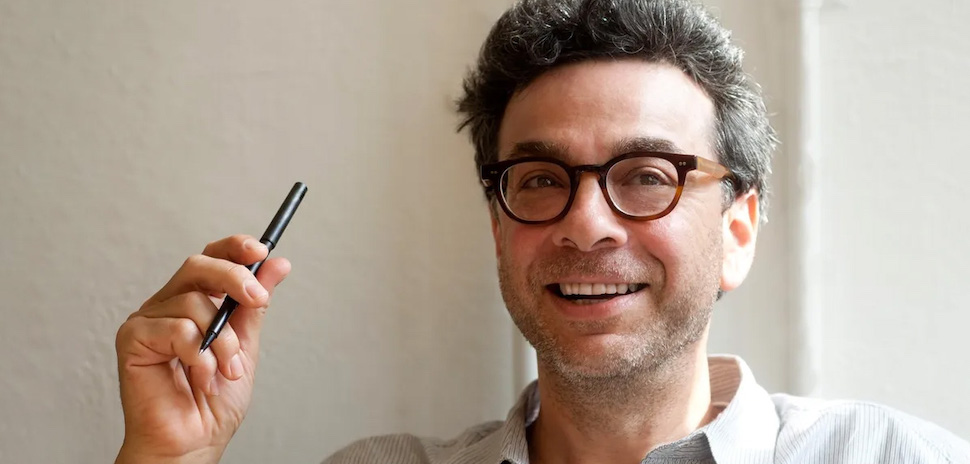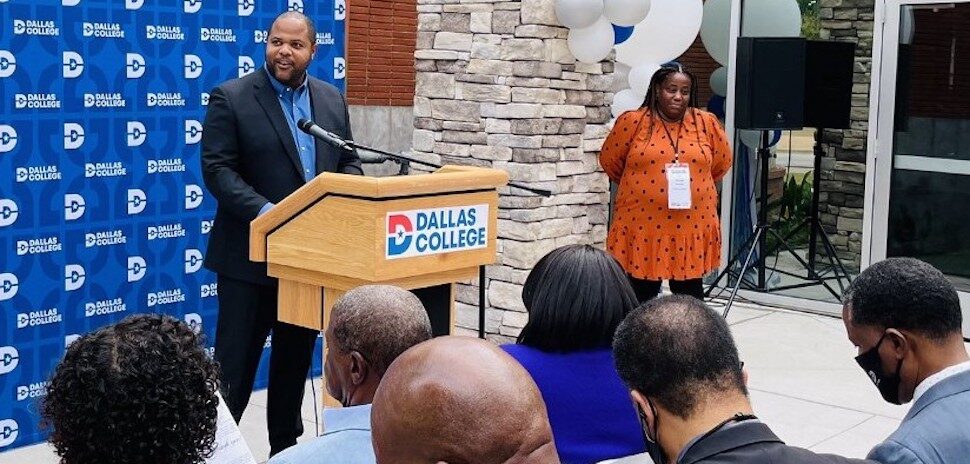Stephen Dubner is the host of Freakonomics Radio and co-author of the Freakonomics books, which have sold millions of copies worldwide. Still, he was surprised to learn something new: Dallas-Fort Worth may soon overtake Chicago as America’s third-biggest metro area. To find out why, he flew to DFW Airport to do a deep dive in all things Big D—and all that surrounds it.
That’s now led to a two-part podcast called “Why Is Everyone Moving to Dallas?” Why two parts? “Because even podcasts are bigger in Texas.”
Part One dropped Wednesday. Here’s what Dubner’s done so far:
He learned why ‘Big D Is a Big Deal.’
Dubner read an article in City Journal called “Big D Is a Big Deal” and learned that more Americans have moved to metro DFW in the last 10 years than anywhere else in the U.S.—positioning it to reach a population of 10 million in around a decade.
So he called the article’s authors.
“Most of what you love about city life, you can have to a greater degree than you ever imagined in the Dallas area,” says Cullum Clark, an economist at SMU and at the George W. Bush Institute..
“Dallas appeals to people for specific reasons, and it’s appealing to a wider and wider group,” adds Joel Kotkin, professor of urban studies at Chapman University. “You will be in shock at how much less you will spend on a home.”
Then he called the mayor.
“I don’t think there’s a city in the country where you can have the quality of a dining experience and take in an off-Broadway performance or go and hear a symphony or an opera performance at our Symphony Hall, which is one of the 10 best symphony halls in the world,” Mayor Eric Johnson tells Dubner.
“Are there places where you could have access to first-run Broadway productions on Broadway?” Johnson adds. “Yes, but you’re going to pay more. This is the best deal in the country.”
He ate a Meat Potato at Sonny Bryan’s Smokehouse.
Yum.
He learned cities north of Dallas are growing fast.
While Dallas grew only 9% in the past decade, Collin and Denton Counties—which include Frisco, Plano, Allen, McKinney, and Denton—saw their populations jump 36%.
“All of these cities have daytime populations roughly equal to their nighttime populations,” Clark tells him. “In some cases, bigger… People are busily working there every day—they’re big centers of business.”
He discovered Dallas is business-friendly.
“All over America, we have overly restrictive occupational- licensing rules,” Clark explains. “We make it too hard to start a hair-braiding salon, to use arguably the most famous example. This happens everywhere, but there’s a lot of variation across places, and it probably won’t surprise you to know that the Dallas–Fort Worth area scores better than most in terms of ease of starting a new business.”
Texas also has no state or local income tax—which Dubner points to as a reason why people like Elon Musk and Joe Rogan have moved from California to the Lone Star State.
He learned that as in New York and other large cities, public schools in Dallas face big challenges.
Mayor Johnson, who grew up in a “rough” West Dallas but got a Boys Club scholarship to attend the private Greenhill school, told Dubner he’s leading a focus on upskilling.
“I think there’s plenty of children in every neighborhood, in every city in this country, who’ve got plenty of academic ability and plenty of desire,” Johnson says. “But what you don’t have a ton of are my first-grade teacher, Miss Ferris.”
As he strives to support efforts to improve Dallas schools, Johnson is also working to “upskill” the Dallas workforce.
“If we focus on giving people the means and the ability to fill these jobs that exist but are going unfilled, because people really aren’t prepared for them, then to be honest with you, a lot of these problems really will solve themselves,” the mayor says.
He saw a Basquiat painting at the Dallas Museum of Art.
Dubner turned a corner and was amazed to see Jean-Michel Basqiat’s portrait-on-a-door work Sam F.
“It’s so stunning to see one hanging on a museum wall because it’s just so—”
“Rare?” says DMA Director Agustin Arteaga, who was walking Dubner through the museum.
“Yeah.”
He talked to people about Dallas ‘friendliness.’
Brent Harman the owner of Sonny Bryan’s Smokehouse (where Dubner returned for lunch during his visit) waxed lyrically about the “extreme friendliness” of Dallas. So did Nicole Myers, the Dallas Museum of Art’s interim chief curator.
“And look, I like friendliness; I am friendly, sometimes,” Dubner says. “But when you’re a stranger in a strange land, how can you trust that friendliness? How can you learn to believe the warmth is real?”
“You have to let your guard down,” Myers replies. “It is actually sincere. When I first came down to this area, you go to even just a convenience store and the person behind the counter is so nice to you, that I would sort of clutch my purse, thinking they’re up to something. ‘I’m going to get mugged at the CVS.’ Not the case. It really is sincere. It’s a way of life. And it’s lovely.”
OK, so why is everybody moving to Dallas?
Dubner pressed Clark for the big-picture answer.
“I would suggest that there are three things that have made all the difference,” Clark says. “One is offering relatively affordable, high quality of life.”
“Secondly, being an exceptionally welcoming place to newcomers of all kinds. That’s a really important thing for a city to get right, but so often they don’t.”
“And third, operating more or less commerce-friendly, growth-friendly policies, particularly in the suburban areas.”
In Episode One of the podcast, Dubner also explores Dallas’ council-manager form of government, its demographic history and property tax base, efforts to improve life in Southern Dallas, and other subjects. You can hear and read the entire podcast here. Part Two will drop next week.
Read Next
Freakonomics Does Dallas, Part 2: Why Frisco is Dallas’ ‘Frenemy’
In part two of host Stephen Dubner’s podcast this week, he looks north to Frisco, learns why it’s Dallas’ “frenemy,” and asks a big question: Is Frisco the future of the American city?
![]()
Get on the list.
Dallas Innovates, every day.
Sign up to keep your eye on what’s new and next in Dallas-Fort Worth, every day.


































































